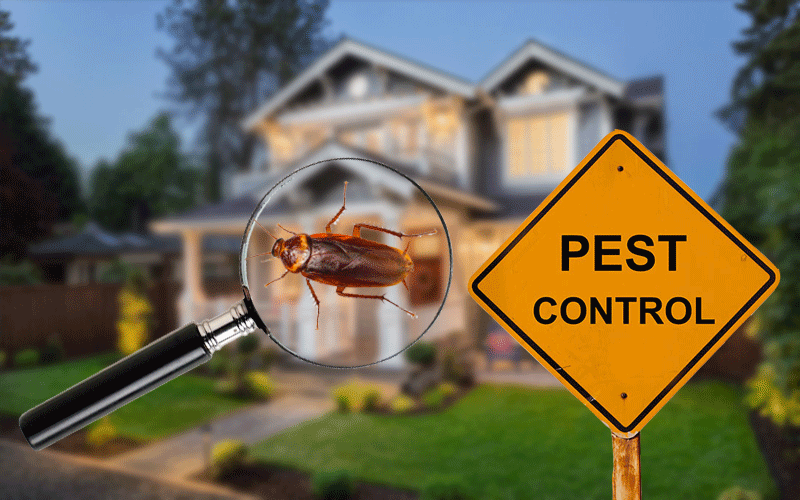Reliable A1 Bed Bug Exterminator Charlotte - Eliminate Bed Bugs Quick
Reliable A1 Bed Bug Exterminator Charlotte - Eliminate Bed Bugs Quick
Blog Article
Bed Insect Therapy Malfunction: Comparing Chemical Vs. Non-Chemical Solutions
In the realm of pest control, particularly when managing the consistent concern of bed insects, the option between chemical and non-chemical therapy services can be a crucial one. Both techniques provide distinct benefits and drawbacks, affecting factors such as performance, safety and security factors to consider, and general price. By taking a look at the nuanced details of each approach, a clearer understanding of which course to pursue in attending to a bed pest infestation can be obtained.
Efficiency of Chemical Therapies
Chemical therapies for bed pest problems have been extensively identified for their quick and powerful efficacy in eliminating these insects. When thinking about the efficiency of chemical therapies, it is crucial to understand that they can provide a quick and thorough service to a bed bug problem.
Moreover, chemical therapies have the benefit of offering recurring results, indicating that they can remain to get rid of bed insects even after the initial application. This recurring action is specifically helpful in combating any type of potential re-infestations. Furthermore, the fast activity of chemical treatments can bring relief to people dealing with severe bed insect infestations, enabling them to restore control of their living areas swiftly.
Safety And Security Interest In Chemical Solutions
When making use of chemical solutions for bed insect treatment is making certain the safety of passengers and the setting,One essential facet that needs mindful consideration. While chemical treatments can be efficient in eradicating bed pests, they may position threats otherwise handled effectively. One of the main safety and security concerns with chemical services is the prospective harm they can cause to human health and wellness. Direct exposure to particular chemicals made use of in bed bug treatments can cause respiratory system concerns, skin irritation, or various other adverse reactions, especially in individuals with pre-existing conditions or level of sensitivities. In addition, incorrect application or dosage of chemical pesticides can lead to hazardous deposits lingering in the treated area, posing long-term health dangers to owners.
In addition, the environmental impact of chemical remedies is an additional considerable consideration. Some pesticides made use of in bed insect therapies may be damaging to advantageous insects, wild animals, and communities if they leach right into the soil or water systems. It is vital to make use of chemical treatments sensibly, adhering to security guidelines, and taking into consideration much less harmful options to alleviate these risks and make certain the risk-free and efficient management of bed insect infestations.
Benefits of Non-Chemical Methods
Thinking about the prospective security problems and ecological influence linked with chemical remedies for bed pest therapy, exploring non-chemical methods provides an appealing option with a number of distinctive advantages. Non-chemical therapies are eco pleasant, as they do not add to air or water air pollution, making them a lasting selection for parasite control.
In addition, non-chemical options can be effective in targeting bed pests, consisting of hard-to-reach locations where chemical treatments might not permeate - A1 bed bug exterminator charlotte. Techniques such as heat therapy, vacuuming, vapor cleaning, and bed mattress coverings give thorough removal without the usage of harmful chemicals.
Limitations of Non-Chemical Treatments

In addition, non-chemical therapies typically require numerous applications to accomplish successful obliteration. This can be taxing and might not always assure full elimination of all bed bugs and their eggs, particularly in hidden or hard-to-reach areas.
In addition, the success of non-chemical therapies heavily counts on proper execution and thoroughness, which can be challenging for individuals without professional expertise. Insufficient application of non-chemical methods might result in insufficient elimination, leading to consistent infestations and the requirement for additional therapies.
For that reason, while non-chemical therapies have their advantages, it is important to acknowledge these constraints and consider them when identifying the most efficient strategy for managing bed insect problems.
Expense Comparison: Chemical Vs. Non-Chemical Options
Provided the limitations connected with non-chemical treatments, a vital element to assess in the context of bed bug monitoring is the price contrast in between chemical and non-chemical choices. In contrast, non-chemical therapies like warm treatment or heavy steam can be much more pricey, with prices ranging from $1,000 to $6,000 for an entire home. While the first cost of chemical therapies might seem reduced, several treatments may be required to totally eliminate the infestation, possibly enhancing the general cost.
Final Thought

Thinking about the possible safety and security issues and ecological effect linked with chemical services for bed insect therapy, checking out non-chemical methods provides an appealing choice with numerous distinctive benefits.Offered the limitations linked with non-chemical treatments, a vital aspect to evaluate in the context of bed insect management is the price comparison in between chemical and non-chemical options. In contrast, non-chemical treatments like heat therapy or steam can be extra expensive, with expenses ranging from $1,000 to $6,000 for a whole home. While the initial price of chemical treatments might appear lower, numerous treatments might be required to completely get rid of the invasion, potentially raising the overall price.In conclusion, when contrasting chemical and non-chemical bed pest treatment alternatives, it is necessary to consider performance, safety, benefits, limitations, and price.
Report this page